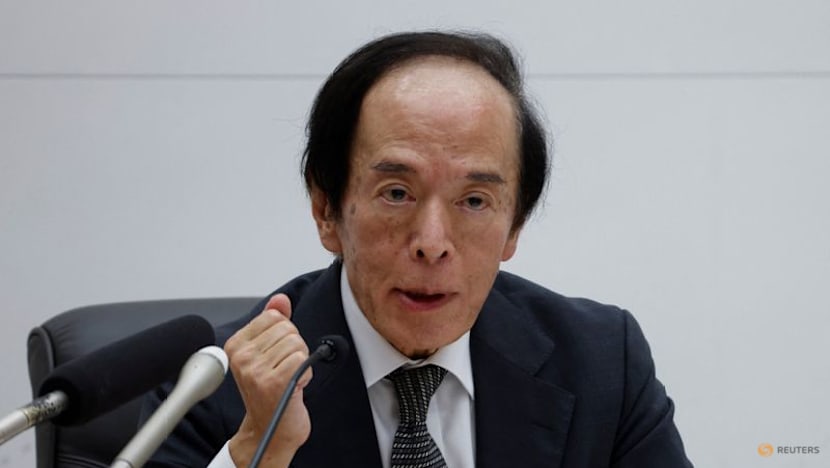BOJ likely to hike rates to 1.5% under Ueda, former board member predicts

FILE PHOTO: Bank of Japan Governor Kazuo Ueda holds a press conference after its policy meeting in Tokyo, Japan September 19, 2025. REUTERS/Manami Yamada/File Photo
TOKYO :The Bank of Japan will probably raise its benchmark interest rate at least four more times to 1.5 per cent before Governor Kazuo Ueda's term ends in early 2028, former central bank board member Makoto Sakurai told Reuters.
Sakurai, who retains close contact with incumbent policymakers, forecast another hike by year-end, two more increases in fiscal 2026, and one or two hikes in the year ending March 2028.
"The BOJ is likely to steadily raise interest rates and normalise monetary policy," he said, adding that Japan's economy is in good shape with big companies reaping hefty profits from price hikes and the boost to exports from a weak yen.
The BOJ raised its short-term policy rate to 0.5 per cent in January, but has since kept interest rates steady on the view that more time was needed to scrutinise the impact of U.S. tariffs on the economy.
Sakurai said he expects the next hike to come either in October or December. The central bank's quarterly "tankan" business survey - due on October 1 - is among key data that could affect the board's decision.
The tankan is likely to show resilience in corporate morale and profits, which could help the BOJ make the case for an October rate hike, Sakurai said.
"But the BOJ won't have enough hard data to judge whether the hit from U.S. tariffs will stay limited," he said.
The chance of an October rate hike may have risen somewhat after two of the board's nine members dissented from the BOJ's decision in September to keep rates steady, Sakurai said.
"Though it's hard to tell, the dissents could have been an intentional signal to markets that a rate hike is approaching," he added.
A Reuters poll, taken before last week's BOJ meeting, showed a majority of economists expect another 25-basis-point hike by the year-end. But others thought a hike might not come till January.
The U.S. administration's weak-dollar policy may also pile pressure on the BOJ to raise rates steadily, Sakurai said, pointing to U.S. Treasury Secretary Scott Bessent's comments in August that the BOJ was "behind the curve" in dealing with inflation.
A joint statement by the U.S. and Japan in September, which reaffirmed their commitment to "market determined" exchange rates, is likely Washington's warning against Tokyo to avoid intervening in the market to combat rises in the yen, he said.
"With the Federal Reserve cutting rates and the BOJ eyeing rate hikes, it's natural for the yen to rise versus the dollar," Sakurai said. "As a trend, we'll likely see a strong yen."
Ueda's current five-year term ends in April 2028.













